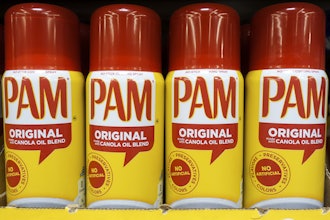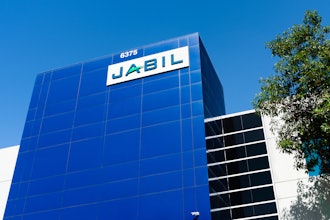MINNEAPOLIS (PRNewswire) — General Mills has improved the health profile of 76 percent of its U.S. Retail sales volume since 2005, when it first established its "Health Metric" to encourage progress on nutrition and health improvements. These improvements include enhancing positive nutrition such as increasing protein, fiber, vitamins and minerals, or reducing limiters such as calories, sodium, sugar and fat, all while ensuring great taste.
This past fiscal year, General Mills improved more than 18 percent of its U.S. Retail sales volume with reductions in trans fat, sugar and sodium driving the biggest gains. All improvements signify a 10 percent or more reduction in limiters or a 10 percent or more increase in positive nutrients.
"After ten years of making health improvements among our brands, health and wellness is now engrained in our culture at General Mills," said Maha Tahiri, General Mills chief health and wellness officer who oversees the Bell Institute of Health and Nutrition. "Our brands are proactively looking for ways to deliver on consumers' desire for products that both taste great and are good for them. That will continue to drive our business over the next 10 years and beyond."
Over the past decade, the General Mills portfolio has shifted to include both new and reformulated products with improved nutrition.
Biggest Gains Over 10 Years
Sodium
In 2010, General Mills announced plans to reduce sodium, on average, by 20 percent in its top 10 categories.
Since Health Metric tracking began in 2005, some of the company's biggest sodium reductions have come in Chex Mix, which reduced sodium by nearly 40 percent since 2008 and frozen pizza, which reduced sodium by more than 25 percent since 2008.
General Mills has also been focusing on the development of new lower sodium products, and will continue to reduce sodium where possible throughout its portfolio while meeting consumers' demand for great tasting products without a taste compromise.
Sugar
General Mills has reduced sugar in its Big G kid cereals by 16 percent since 2007.
The company has also been reducing sugar in other areas of its portfolio including yogurt and snacks.
Since 2007, the company has reduced sugar in its main kid yogurts – Yoplait Go-GURT, Yoplait Trix and Yoplait Kids – by nearly 25 percent.
The company has also made strides in reducing sugar in several varieties of Cascadian Farm chewy granola bars by more than 10 percent.
Trans Fat
Since 2008, General Mills has reduced trans fat to zero grams in more than 250 of its U.S. retail products. Today, more than 90 percent of the company's U.S. retail products are labeled as zero grams trans fat.
Examples of products labeled zero trans fat include: Betty Crocker Rich and Creamy Frosting, Pillsbury Toaster Strudel, Toaster Scrambles, all Pillsbury Grands! refrigerated biscuits and the Simply... line of cookies, bread and biscuits. All Totino's Pizza and Pizza Rolls are also labeled zero grams trans fat.
General Mills continues its efforts to remove trans fat while maintaining the quality and taste consumers expect.
Whole Grain
Nine out of 10 Americans aren't getting enough whole grain.
To help address this need, General Mills started adding whole grain to cereal in 2005, and today, every Big G cereal contains more whole grain that any other single ingredient and at least 10 grams of whole grain per serving. More than 20 General Mills cereals deliver at least 16 grams.
Vitamins and Minerals
Many people lack key nutrients in their diets. General Mills has been fortifying products since the 1940s when it started adding vitamins and iron to Gold Medal and its other flours.
Today, 100 percent of Big G kid cereals are fortified with vitamin D as well as iron and B vitamins. General Mills' U.S. protein snack bars deliver a range of six to 10 grams of protein per bar. And, the company's Fiber One brand offers 45 fiber-added products.
Calories
The company has been working to reduce calories across its portfolio to help combat obesity.
Today, more than 950 U.S. Retail products contain 150 calories or fewer per serving, representing approximately 60 percent of General Mills' U.S. retail products. And, approximately 575 General Mills U.S. Retail products contain 100 calories or fewer per labeled serving. This represents approximately 35 percent of General Mills' U.S. retail products.
The General Mills Health Metric
Fiscal 2014 marks the tenth year General Mills has tracked and quantified health improvements using the company's "Health Metric" — a corporate initiative overseen by General Mills' Health and Wellness Council and the General Mills Bell Institute of Health and Nutrition — to encourage and measure the company's progress on nutrition and health improvements.
"General Mills is committed to continuously improving the health profile of our existing products while introducing innovative, new products with strong health credentials," said Tahiri. "What gets measured gets improved, so we will continue to track our health improvements and find new ways to offer consumers great tasting products that are also good for them."
Sourcing & Sustainability
In the past decade, people have begun to make connections between health and the sourcing of the food ingredients. In response to this, General Mills is taking steps to share information about products' environmental footprint and farm to fork journeys, like Cheerios Oats to O's, the sustainable sourcing of vanilla and artichokes, and "A Visit to the Valley" video series with Green Giant. The company is also proactively outlining its policies on animal welfare, water, climate change and other topics as consumers consider how food is impacting the world around them.
For more information about General Mills' commitment to health and wellness, download the company's 2014 Global Responsibility Report at www.GeneralMills.com.
About General Mills
General Mills is one of the world's leading food companies, operating in more than 100 countries around the world. Its brands include Cheerios, Fiber One, Haagen-Dazs, Nature Valley, Yoplait, Betty Crocker, Pillsbury, Green Giant, Old El Paso, Wanchai Ferry, Yoki and more. Headquartered in Minneapolis, Minn., USA, General Mills had fiscal 2014 worldwide sales of US $17.9 billion.






















